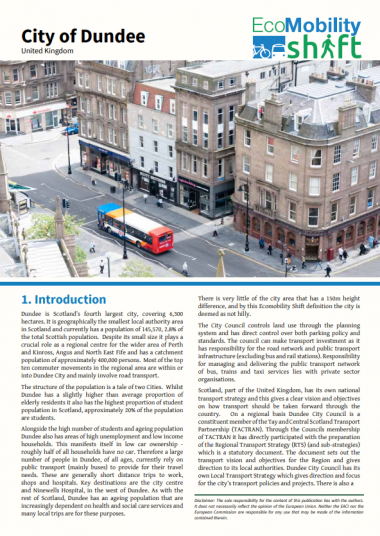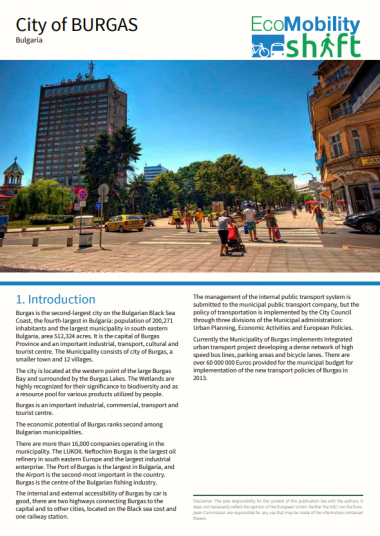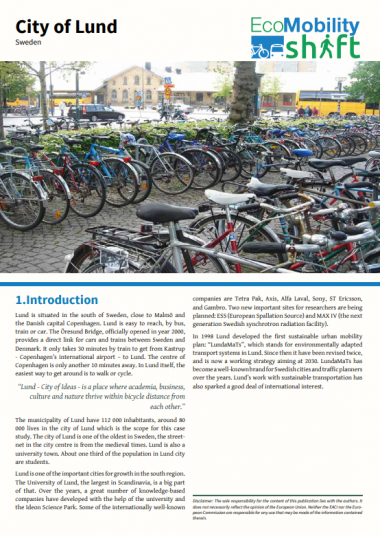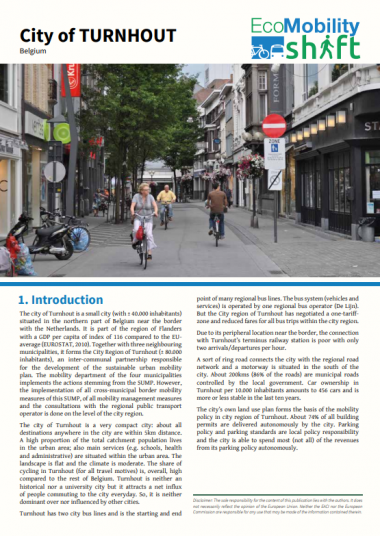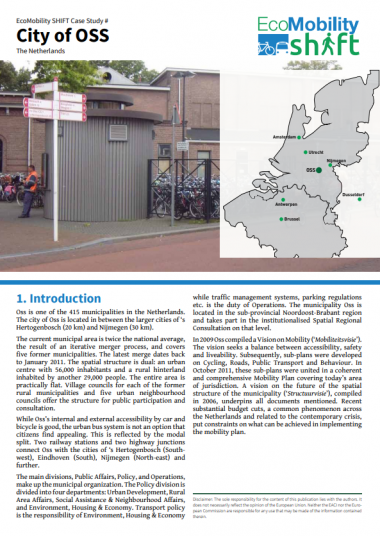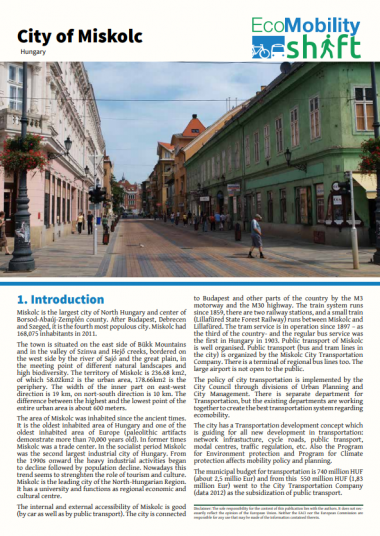EcoMobility SHIFT

EcoMobility SHIFT is a total quality management scheme that allows cities to access their mobility performance, establish a path of continuous improvement; analyze performance; and act to improve. This is the original scheme which was developed in 2013 for European cities.
EcoMobility SHIFT indicators
Enablers
E1: Understanding User Needs
E2: Public Participation
E3: Vision, Strategy and Leadership
E4: Finance for EcoMobility
E5: Personnel and Resources
E6: Monitoring, Evaluation and Review
Transport Systems and Services
TSS2: Low Speed / Car Free Zones
TSS3: Information Provision & Systems
TSS4: Mobility Management
TSS5: Parking
TSS6: Walking
TSS7: Cycling
TSS8: Public Transport Coverage & Speed
TSS9: Usability of Public Transport
TSS10: Low Emission Vehicles
Results and Impacts
RI2: Safety
RI3: Greenhouse Gases
RI4: Air Quality
EcoMobility SHIFT process
Assess
A city performs the assessment of the existing status of the mobility performance and actions to establish a base line. The assessment is performed against a set of indicators developed by the SHIFT scheme. The city can either do the assessment independently or with the support of an advisor. Using an advisor is beneficial to establish necessary action plans and identify solutions to improve the performance in certain areas.
Audit
Upon completion of the Assessment (Step 1), a city can chose to get their results audited by an external transport professional who is also a certified auditor for the SHIFT scheme. The auditor will examine the scoring in the assessment against the evidence produced by the city. After the audit, the score obtained by the city shall be the final score. The auditor is an external and independent person who is not involved in the assessment. This is essential to maintain impartiality in the results.
Award
Once the audit process is completed and the city receives a final audit score, t. The city can chose to get a EcoMobility label for their achievement. Depending on their score the city shall be labeled either a Gold, Silver or a Bronze standard for their mobility performance. It is also possible that the city does not receive any standard because of their poor performance.
Related news

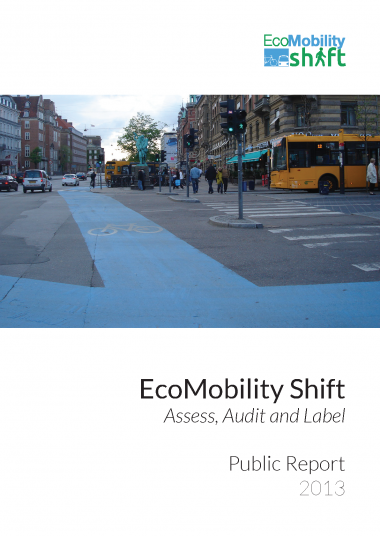
Published on 15 July 2013
EcoMobility SHIFT Public Report 2013
It points out the importance of EcoMobility SHIFT for the Sustainable Urban Mobility Plans (SUMPs) guidance material along with the main lessons learnt during the project and concluding with thoughts on possible next steps, viewed from the challenge of making urban mobility more sustainable across Europe as quickly as possible.





